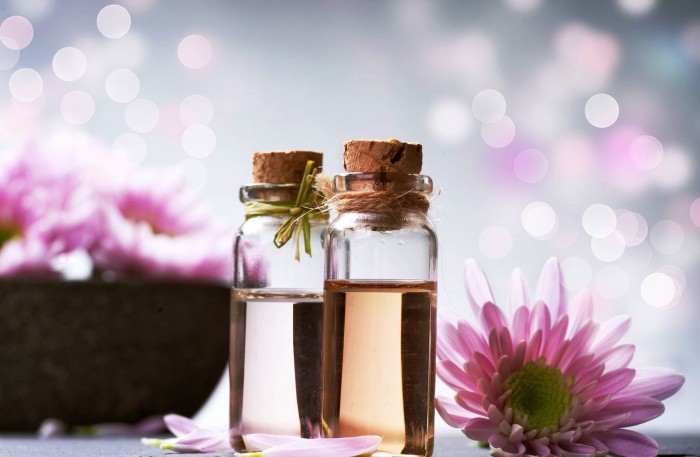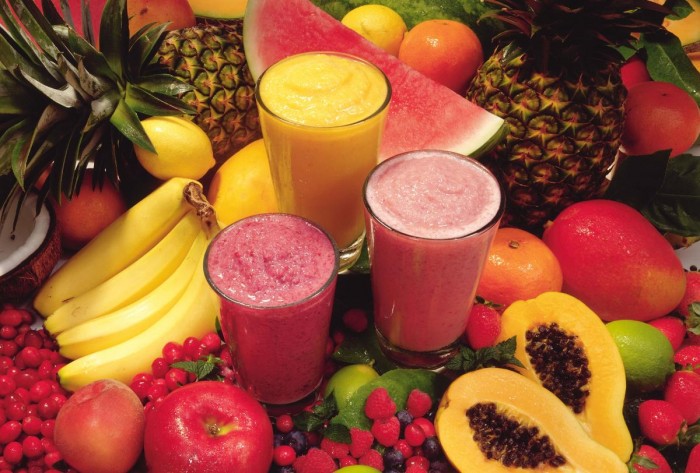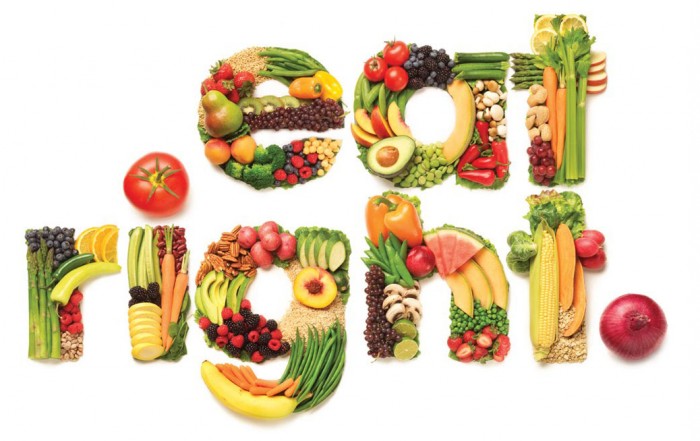
Japanese Anti-Aging Foods: Secrets to Youthful Living
Japanese cuisine is renowned not only for its unique flavors but also for its remarkable health benefits. The traditional Japanese diet is rich in nutrients that promote longevity and combat the signs of aging.
Many Japanese people enjoy a variety of foods that are packed with vitamins, minerals, and antioxidants, contributing to the overall health of individuals and enhancing their skincare routines. This article delves into the secrets of Japanese anti-aging foods that have been cherished for centuries and explores how these foods can help maintain a youthful appearance.
Understanding the Japanese Diet: A Holistic Approach to Anti-Aging
The Japanese diet is characterized by a holistic approach to nutrition, emphasizing balance and moderation. Traditional meals often consist of rice, vegetables, fish, and fermented foods, which are rich in nutrients essential for skin health and vitality. This diet is low in processed foods and added sugars, focusing instead on natural ingredients that provide essential vitamins and minerals.
Furthermore, the cultural practices surrounding food, such as mindfulness and appreciation for seasonal ingredients, enhance the eating experience and promote healthier choices. The emphasis on small portions, known as “hara hachi bu,” encourages individuals to eat until they are 80% full, further supporting anti-aging benefits.
In addition to portion control, the Japanese diet incorporates a variety of antioxidants found in foods like green tea and seaweed, which can help combat oxidative stress. This nutritional philosophy fosters a lifestyle that prioritizes overall health and wellness, aligning with the principles of Japanese culture that value harmony between the body and mind. By understanding the components of the Japanese diet, individuals can adopt similar habits that contribute to longer life and youthful vitality.
The Science Behind Anti-Aging Foods: How Nutrition Impacts Aging
Nutritional science has unveiled how certain foods can significantly impact the aging process. Anti-aging foods, rich in antioxidants and polyphenols, play a crucial role in fighting free radicals that contribute to cellular damage.
Ingredients such as green tea, particularly matcha, are known for their high catechin content, which helps reduce oxidative stress and inflammation. This process aids in slowing down the causes of aging, promoting healthier skin and overall longevity.
Moreover, the consumption of nutrient-dense foods like soy products, which contain isoflavones, supports collagen production essential for maintaining skin elasticity. These compounds mimic estrogen in the body, helping to balance hormones that can fluctuate with age.
By incorporating these scientifically-backed anti-aging foods into their diet, individuals can not only enhance their skin health but also improve their quality of life, ensuring a vibrant, youthful appearance for years to come.
Top Japanese Anti-Aging Foods and Their Benefits
1. Green Tea (Matcha): The Antioxidant Powerhouse
Green tea, especially matcha, is celebrated for its rich antioxidant properties. It is packed with catechins, which are potent antioxidants that combat oxidative stress in the body. This powerful beverage has anti-aging benefits that can help keep wrinkles at bay while promoting skin health. Studies have shown that the regular consumption of green tea can enhance hydration and improve the skin’s overall texture, making it a staple in the Japanese diet.
In addition to its skincare benefits, green tea contributes to overall health by supporting metabolic functions and promoting fat oxidation. Many Japanese people enjoy this traditional drink as part of their daily routine, allowing them to reap its numerous health advantages. Incorporating matcha into your diet can be as simple as enjoying a cup of tea or using it in various recipes, making it an accessible option for those looking to enhance their anti-aging regimen.
2. Seaweed (Wakame, Nori, Kombu): Minerals for Skin Elasticity
Seaweed is a staple in Japanese cuisine, offering an array of minerals and nutrients that promote skin elasticity and hydration. Varieties such as wakame, nori, and kombu are rich in calcium, magnesium, and vitamins that support skin health. These minerals are essential for maintaining collagen production, which is crucial for keeping the skin firm and youthful. Additionally, seaweed contains antioxidants that protect against free radicals, further enhancing its anti-aging benefits.
Including seaweed in your diet can be as easy as adding it to soups, salads, or sushi. Many Japanese women incorporate seaweed into their meals regularly, benefiting from its rich nutrient profile. As an integral part of the Japanese diet, seaweed not only contributes to a delicious culinary experience but also helps individuals maintain a youthful appearance by supporting healthy skin and overall well-being.
3. Soy-Based Foods (Tofu, Miso, Natto): Isoflavones for Youthful Skin
Soy-based foods such as tofu, miso, and natto are essential components of the Japanese diet, providing a wealth of isoflavones that offer significant anti-aging benefits. These compounds have been shown to mimic estrogen in the body, which can help improve skin elasticity and reduce the appearance of wrinkles. The rich amino acids found in soy products also contribute to collagen synthesis, ensuring that the skin remains firm and youthful.
Incorporating soy into your diet can be both delicious and beneficial. Miso soup, a common dish in Japanese cuisine, is not only comforting but also offers probiotic benefits that support gut health. Regular consumption of soy-based foods can help individuals maintain healthy skin and balance their hormones, making it an essential aspect of any anti-aging strategy.
4. Sweet Potatoes (Satsumaimo): Nature’s Beta-Carotene Boost
Sweet potatoes, particularly satsumaimo, are a popular ingredient in Japanese cuisine and are known for their high beta-carotene content. Beta-carotene is a powerful antioxidant that helps support skin health by promoting hydration and protecting against sun damage. The rich color of sweet potatoes indicates their high nutrient density, making them an excellent addition to any anti-aging diet.
Moreover, sweet potatoes are versatile and can be prepared in various ways, such as roasted, steamed, or in soups. Many Japanese people enjoy these nutrient-rich tubers as a side dish or dessert, benefiting from their natural sweetness and health properties. Including sweet potatoes in your meals not only satisfies your taste buds but also boosts your intake of essential vitamins that help maintain a youthful glow.
5. Shiitake Mushrooms: Immune-Boosting Anti-Aging Superstars
Shiitake mushrooms are a cherished ingredient in Japanese cuisine, known for their unique flavor and impressive health benefits. These mushrooms are rich in polysaccharides and beta-glucans, which support immune function and combat inflammation. This immune-boosting property is essential for maintaining overall health, which is a critical component of the anti-aging process.
In addition to their immune benefits, shiitake mushrooms are also rich in vitamins and minerals that contribute to skin health. They contain antioxidants that help protect against oxidative stress and promote cellular regeneration. Many Japanese people incorporate shiitake mushrooms into their meals, whether in soups, stir-fries, or as a meat substitute, making them an integral part of a balanced and anti-aging diet.
6. Fatty Fish (Salmon, Mackerel): Omega-3s for Skin and Heart Health
Fatty fish, such as salmon and mackerel, are renowned for their high omega-3 fatty acid content. These essential fats play a crucial role in maintaining skin health by promoting hydration and reducing inflammation. Omega-3s support the skin’s lipid barrier, helping to keep it moisturized and resilient against environmental stressors, which is vital for an anti-aging diet.
Moreover, fatty fish are linked to heart health, which is essential for longevity. Consuming these nutrient-rich fish regularly can help reduce the risk of chronic diseases and support overall well-being. Many Japanese people enjoy fish as a staple protein source, often prepared simply to highlight its natural flavors, ensuring they receive the full spectrum of health benefits that contribute to youthful living.
7. Fermented Foods (Miso, Umeboshi): Gut Health and Longevity
Fermented foods like miso and umeboshi are integral to Japanese cuisine and offer myriad health benefits. These foods are rich in probiotics, which support gut health and enhance nutrient absorption. A healthy gut microbiome is essential for overall health and has been linked to improved skin conditions, making fermented foods a vital component of an anti-aging diet.
The fermentation process not only enriches these foods with beneficial bacteria but also enhances their flavor and digestibility. Miso soup is a staple in many Japanese households, providing a comforting and nutritious option that supports gut health. Incorporating fermented foods into your meals can help maintain a balanced diet that promotes longevity and youthful vitality, aligning with the principles of traditional Japanese culture.
How Japanese Foods Work to Slow Aging
Fighting Free Radicals: The Role of Antioxidants
Antioxidants play a pivotal role in combating free radicals, which are unstable molecules that contribute to oxidative stress and accelerate the aging process. Japanese anti-aging foods, such as green tea and berries, are rich in antioxidants that neutralize these harmful compounds. By incorporating these foods into the diet, individuals can effectively reduce the effects of oxidative damage on their cells, promoting healthier skin and overall vitality.
The protective effects of antioxidants can also extend to various aspects of health, including heart health and immune function. Consuming a diet rich in antioxidants not only helps maintain youthful skin but also supports longevity by reducing the risk of chronic diseases. Many Japanese people embrace this philosophy by enjoying a diverse array of antioxidant-rich foods daily, ensuring they harness the full benefits of these powerful compounds in their fight against aging.
Supporting Collagen Production: Foods for Firm Skin
Collagen is a vital protein that provides structure and elasticity to the skin. As we age, collagen production naturally declines, leading to wrinkles and sagging skin. Foods that support collagen production are essential in an anti-aging diet. Ingredients like soy products, fish, and leafy greens are rich in nutrients that promote collagen synthesis, helping to keep the skin firm and youthful.
Incorporating these collagen-boosting foods into daily meals can make a significant difference in skin health. For instance, consuming dishes that combine fish with vegetables creates a powerful synergy of nutrients that enhance the body’s ability to produce collagen. Many Japanese people have a deep-rooted appreciation for these foods, making them an integral part of their traditional diet as they work towards maintaining youthful, resilient skin.
Promoting Hydration: Essential Foods for Moisturized Skin
Hydration is crucial for maintaining skin health and preventing the signs of aging. Foods that promote hydration, such as cucumbers, fruits, and soups, are essential components of the Japanese diet. Incorporating these hydrating foods helps to keep the skin plump and reduces the appearance of fine lines and wrinkles, contributing to a youthful appearance.
In addition to consuming hydrating foods, many Japanese people also prioritize drinking water and herbal teas, further supporting their skin’s hydration levels. The combination of moisture-rich foods and adequate fluid intake creates an environment conducive to healthy, glowing skin. By adopting these habits, individuals can effectively combat dryness and maintain a youthful complexion, showcasing the beauty of Japanese anti-aging practices.
Enhancing Cellular Regeneration: How Bioactive Compounds Revitalize the Body
Bioactive compounds found in various Japanese foods play a significant role in enhancing cellular regeneration. These compounds, such as polyphenols and flavonoids, support the body’s natural repair mechanisms and help rejuvenate cells. Foods like green tea and colorful vegetables are rich in these bioactive substances, promoting a healthy turnover of skin cells and improving overall skin health.
Incorporating foods rich in bioactive compounds not only supports skin health but also enhances overall well-being. Many Japanese people consume a diverse range of colorful fruits and vegetables, ensuring that they receive a wide array of these beneficial compounds. By prioritizing bioactive-rich foods, individuals can revitalize their bodies and maintain a youthful appearance, effectively combating the signs of aging.
Balancing Hormones: The Isoflavone Effect
Isoflavones found in soy products are known for their ability to mimic estrogen in the body, which can help balance hormones that fluctuate with age. This hormonal balance is crucial for maintaining skin elasticity and moisture levels, making isoflavones an essential component of an anti-aging diet. Foods like tofu, miso, and natto are not only delicious but also pack a powerful punch in supporting hormonal health.
Women in particular may benefit from incorporating more isoflavone-rich foods into their diets as they navigate hormonal changes associated with aging. By enjoying these traditional Japanese foods, individuals can naturally support their hormone levels, promoting youthful skin and overall health. The role of isoflavones in the Japanese diet exemplifies how food can be a powerful ally in the pursuit of longevity and anti-aging.
Japanese Anti-Aging Eating Habits: The Longevity Lifestyle
Eating in Small Portions: The Art of “Hara Hachi Bu”
The Japanese practice of “hara hachi bu,” which translates to eating until 80% full, is a cornerstone of their anti-aging lifestyle. This mindful approach to eating encourages individuals to listen to their bodies and avoid overeating, which can lead to weight gain and various health issues. By consuming smaller portions, Japanese people can enjoy a diverse array of foods while maintaining a balanced diet that supports longevity and overall health.
This practice not only helps in maintaining a healthy weight but also promotes better digestion and nutrient absorption. Eating in moderation allows the body to process food more efficiently, ensuring that it receives the necessary vitamins and minerals without excess calories. The art of “hara hachi bu” is a key component of the Japanese diet and serves as a valuable lesson for those seeking to adopt healthier eating habits that contribute to anti-aging.
Fresh and Seasonal Ingredients: Prioritizing Quality Over Quantity
Japanese cuisine emphasizes the use of fresh and seasonal ingredients, which are often richer in nutrients and flavor. This focus on quality over quantity ensures that meals are not only satisfying but also packed with vitamins and minerals essential for skin health and overall well-being. Many Japanese people take pride in sourcing local produce, which enhances the nutritional value of their meals and supports sustainable practices.
By prioritizing fresh ingredients, individuals can enjoy a diverse range of flavors and textures while maximizing the health benefits of their diet. Seasonal eating aligns with the cycles of nature, allowing for a more mindful approach to food consumption. This practice not only contributes to a healthier diet but also fosters a deeper connection to food, enhancing the enjoyment of meals and promoting a longevity lifestyle.
Fermentation Tradition: Unlocking the Health Benefits of Preserved Foods
The tradition of fermentation in Japanese cuisine unlocks numerous health benefits, particularly in promoting gut health and enhancing nutrient absorption. Foods like miso, kimchi, and umeboshi are staples in Japanese households and are rich in probiotics that support a balanced gut microbiome. A healthy gut is essential for overall health and can significantly impact skin conditions, showcasing the anti-aging benefits of fermented foods.
Moreover, fermentation enhances the flavor and digestibility of foods, making them more enjoyable to consume. Many Japanese people incorporate fermented foods into their daily meals, benefiting from their unique flavors and health properties. Embracing the fermentation tradition not only enriches the diet but also supports longevity and youthful living, aligning with the principles of the Japanese diet.
Conclusion: Unlocking the Secrets of Japanese Anti-Aging Foods
Japanese anti-aging foods offer a treasure trove of nutritional benefits that can help individuals maintain a youthful appearance and promote longevity. By adopting the principles of the Japanese diet, including the consumption of antioxidant-rich foods, incorporating seasonal ingredients, and practicing mindful eating habits, individuals can unlock the secrets to youthful living. The rich tapestry of Japanese cuisine, steeped in tradition and health benefits, provides a holistic approach to aging gracefully.
Furthermore, the emphasis on quality ingredients, portion control, and the incorporation of fermented foods highlights the importance of a balanced lifestyle. By embracing these practices, individuals can not only enhance their skincare routines but also improve their overall well-being. The wisdom of Japanese culture, combined with the science of nutrition, offers valuable insights for anyone seeking to combat the signs of aging and achieve a vibrant, youthful life.















